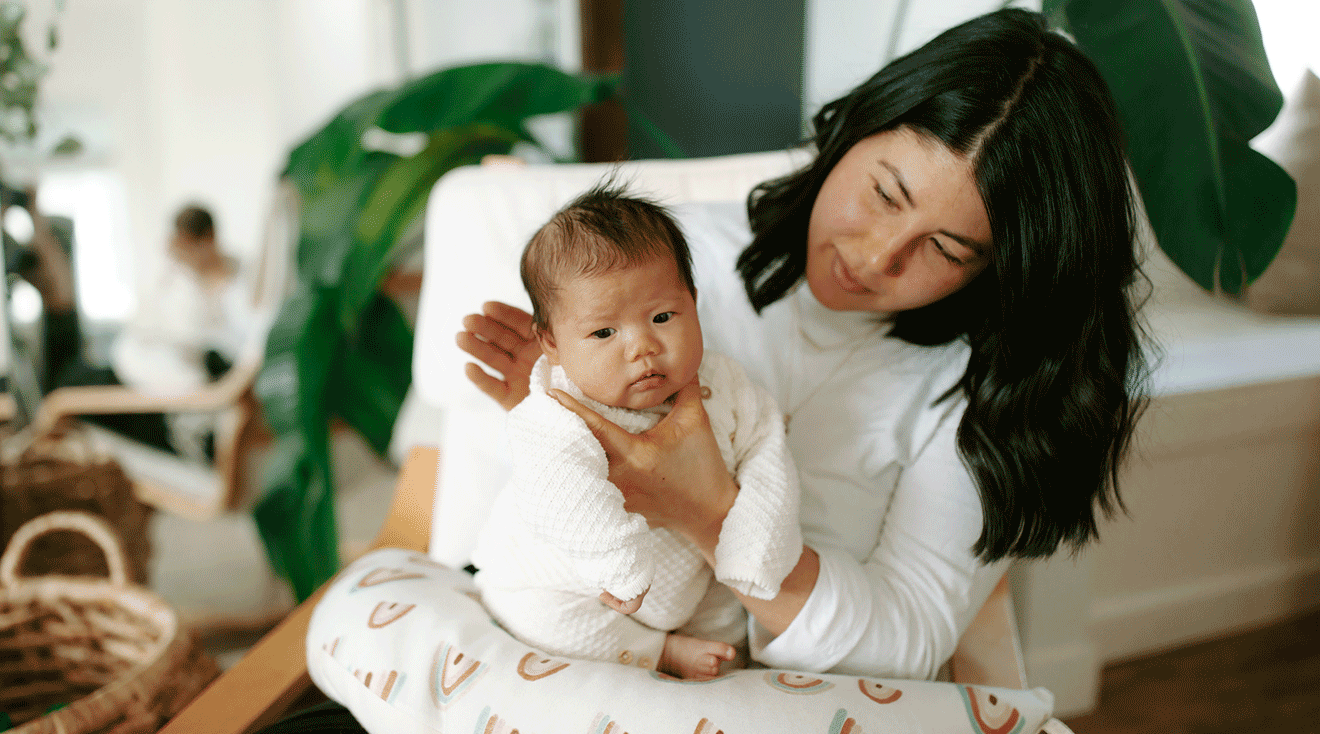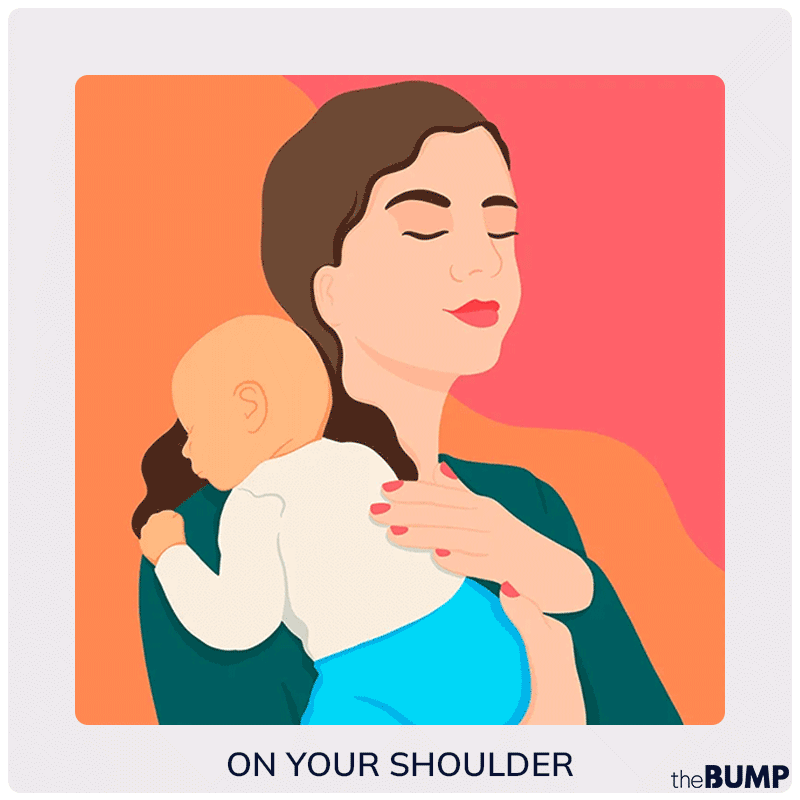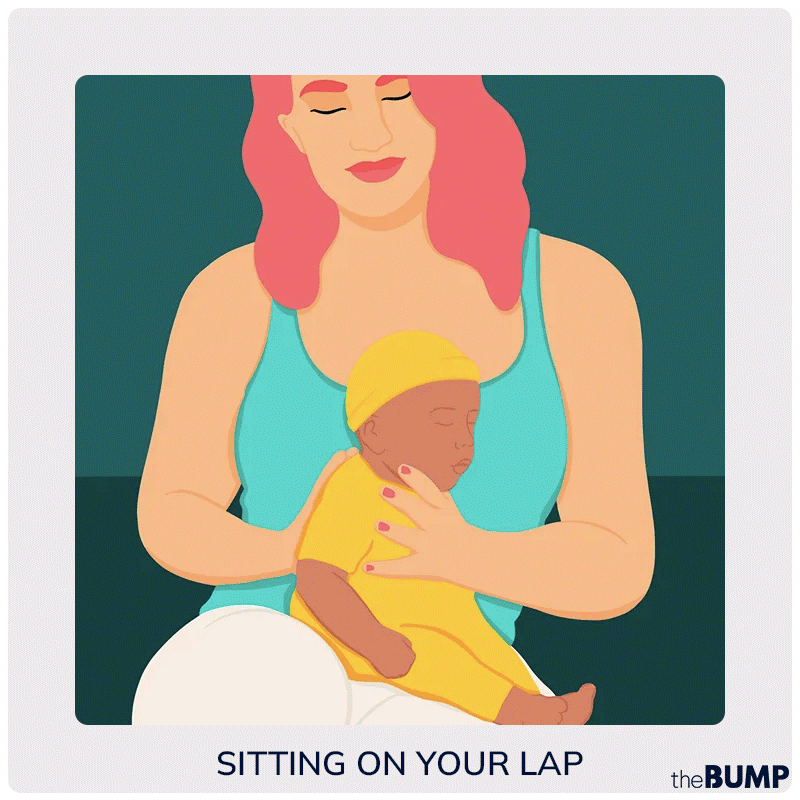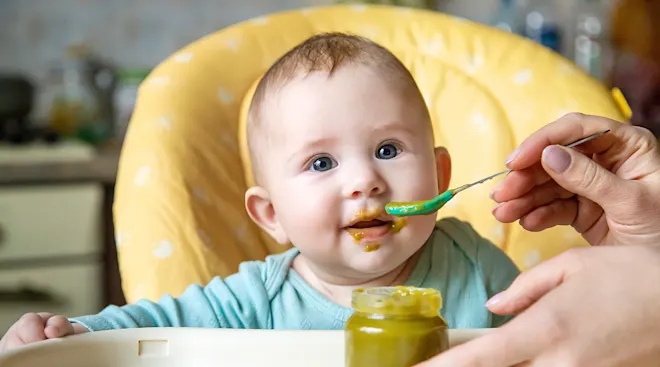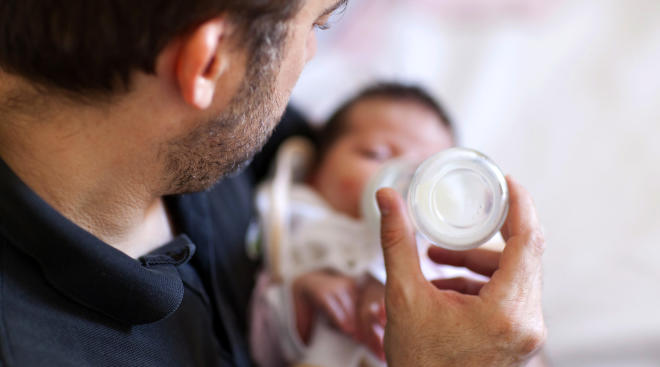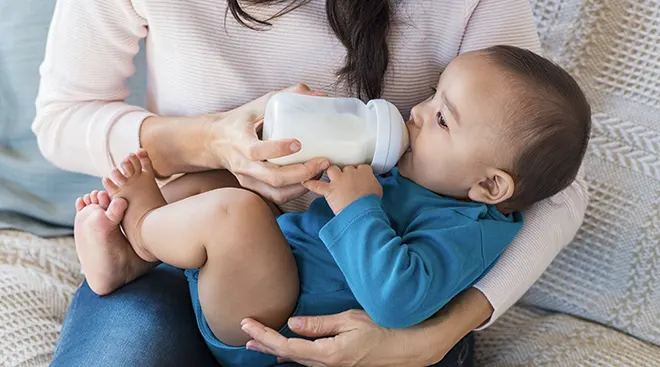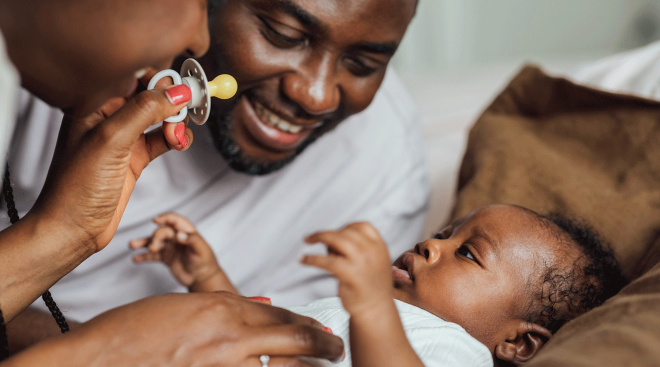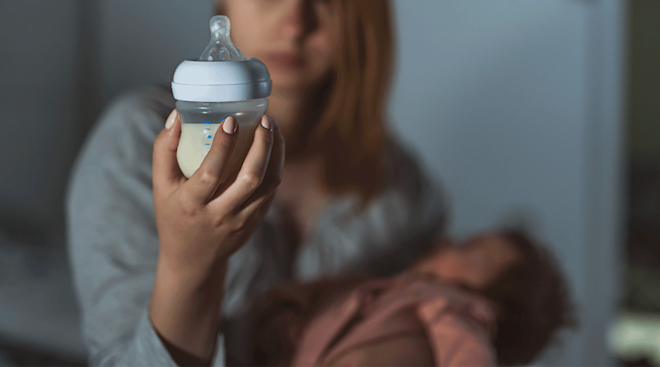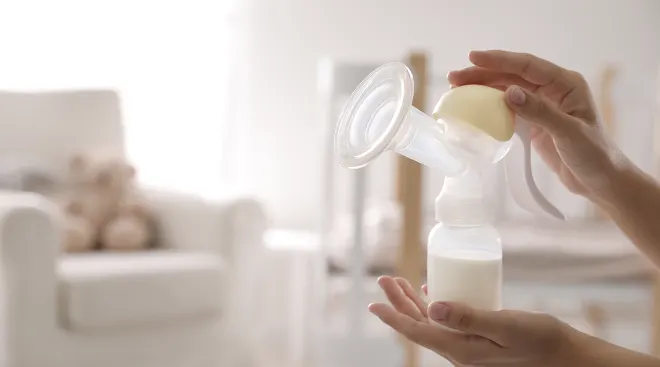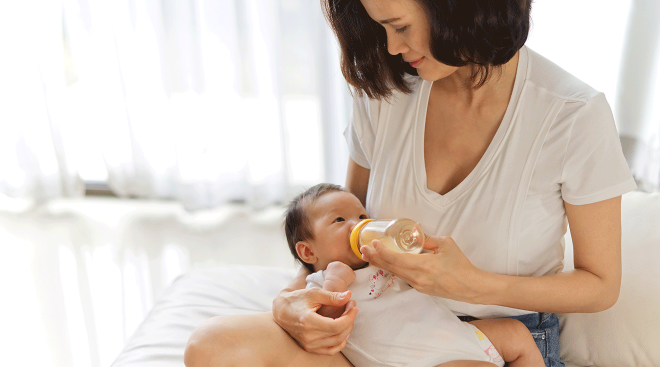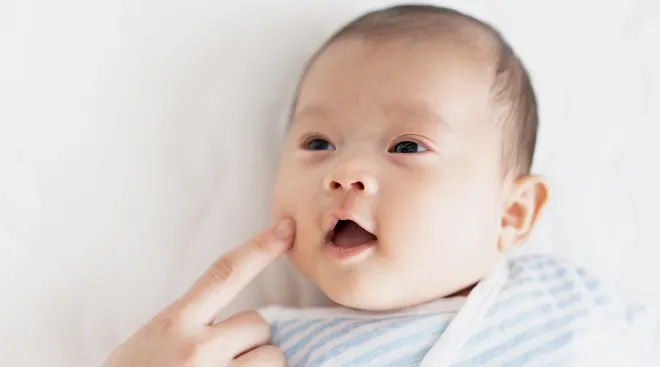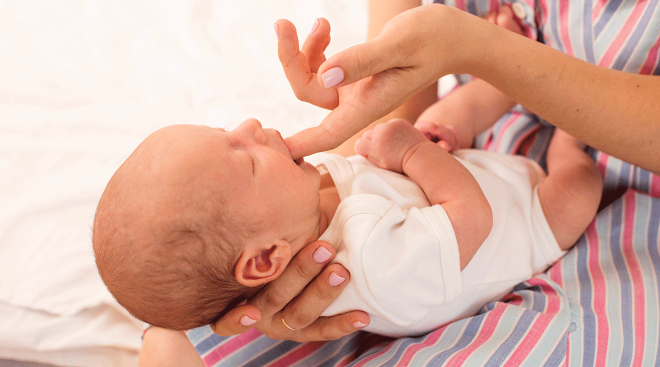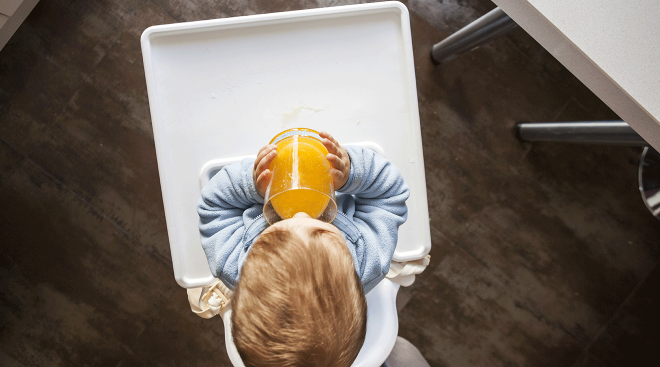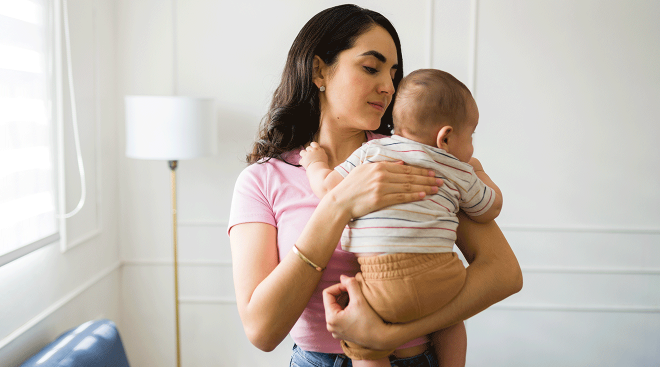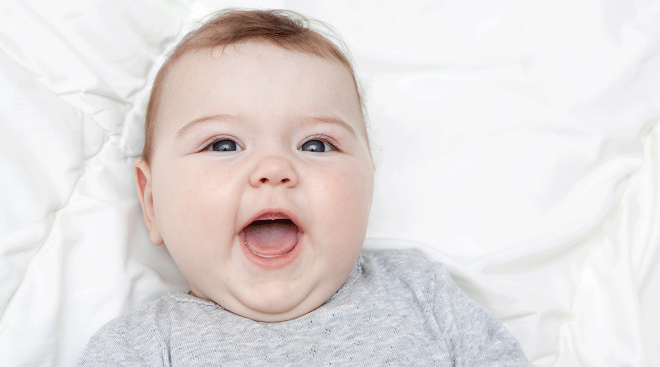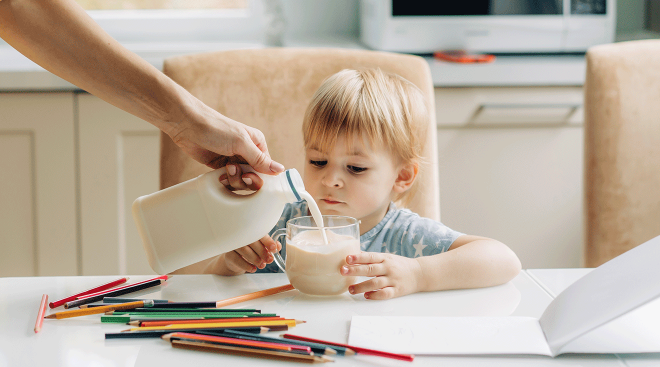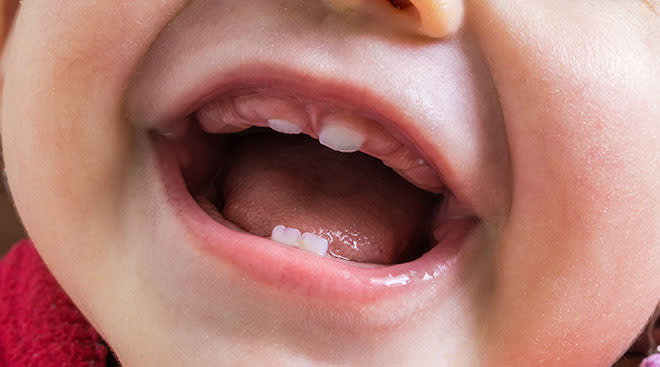How to Burp a Baby
When you’re a parent of an infant, there are few things as deeply satisfying as the sound of baby burping. After a good minute or so of back patting, the tiny creature in your arms suddenly lets out a deep belch—ah, the sound of accomplishment! (Music to your ears.) Sure, it’s embarrassing when one slips out of you in public, but for babies, it’s an important part of their routine. Wondering why you should burp a baby—and, more importantly, how to burp a baby? We asked experts to share the best ways to burp a baby, as well as helpful guidelines for when to start and stop burping your little one.
It’s a big question new parents have: Do you have to burp your baby? The answer: yes. Babies need to be burped to release air they’ve swallowed while eating and drinking, explains Denise Scott, MD, an Oklahoma-based pediatrician. “Burping babies helps to relieve them of this extra air, and makes them more comfortable,” she adds. While bottle-fed babies may be at risk of swallowing more air during feeds than breastfed babies, all infants should be burped during and after eating.
So how do you know when baby has swallowed extra air and needs to be burped? “Once baby completes a feeding, they typically need to burp,” Scott says. You’ll know it’s time if your little one shows signs of having air trapped in the stomach, which can “displace food and create discomfort,” she adds. Below, some clues to look for:
If you notice any of these signs while baby’s eating, pause the feeding and try to burp baby (rather than letting them fuss and feed at the same time, which may also lead to more spit up), the American Academy of Pediatrics (AAP) notes.
Scott’s rule of thumb is to stop and burp baby in the middle of their feeding after they’ve consumed an ounce or two—and then again afterward. “They may not burp after every feeding but an attempt should be made,” she says.
Wondering how to burp a newborn or older baby? There isn’t one best way to burp a baby, but you’ve got a few tried-and-true positions to choose from, notes Tanya Altmann, MD, FAAP, a Los Angeles–based pediatrician. Plus, sometimes mixing up the baby and newborn burping positions can help. Below, Scott and Altmann share their top three baby and newborn burping techniques.
Baby and newborn burping positions
On your shoulder: Start with baby in an upright position and drape them over your shoulder. Baby’s head should be at your shoulder level, with their child resting on your shoulder, Scott says. Then, gently pat, rub and massage their back to encourage the trapped air out. Scott says to try this position first.
Face down on your lap: If draping baby over your shoulder doesn’t work, try laying them “on their stomach on [your] lap,” advises Scott. Be mindful of supporting baby, and steady them with one hand, while gently patting and rubbing their back with the other.
Sitting on your lap: The final position involves sitting them upright on your lap facing away from you. Lean their weight slightly forward against one of your hands, making sure to support their chest and head, and gently pat their back with your other hand.
Remember, when burping a newborn or older baby, it’s a smart idea to place a burp cloth over your shoulder or lap to protect your clothes and keep messes in check. “Spit-up and undigested milk often accompany the gas as it comes up and out,” says Helen Anderson, RN, CLE, a nurse and lactation educator in Oregon.
Wondering how long to burp a baby? Scott says to try to burp baby for several minutes—and if baby spits up often or easily, the AAP advises holding them upright for at least 20 minutes after a feeding to prevent spit up.
How to burp a sleeping baby
Every parent knows that sometimes babies fall asleep while feeding at the breast or bottle. To that end, you might be wondering how to burp a sleeping baby. Scott says you can burp a sleeping baby using the same positions mentioned above before laying them down on their back to sleep. “This will not always be successful, and that’s okay, but burping may prevent them from spitting up in their sleep.”
For Veronica Duckett, mom to a 10-month-old, it took some time before she realized she needed to be burping baby more often than she thought. “Our little one has always been gassy, and I now know to burp him right after a feeding,” she says. “Especially when he passes out after his last feeding, I know I need to get the gas out or he’ll wake up within the hour of setting him down.” Ask her how to burp a sleeping baby, and she’ll tell you to hold them upright, gently bouncing and rocking them while rubbing their back. She says of her baby: “I hear those two giant burps, and I know he’s going to sleep well.”
How often you burp baby largely depends on their unique needs and “how much air they tend to swallow while feeding,” Anderson says. “Some babies need to be burped during every feeding, and others don’t need it that often.” In other words, if baby often seems upset after feeding, burp them more frequently. Babies should be burped at least every 10 minutes during a feeding, no matter if it’s by breast or bottle—which equals to about halfway through and at the end of a bottle, or after nursing on each breast, says Danelle Fisher, MD, FAAP, chair of pediatrics at Providence Saint John’s Health Center in Santa Monica, California.
If you just can’t get baby to burp, consider switching up your baby burping positions. “Make sure you’re slightly cupping your hand as you pat baby’s back and aim between the shoulder blades,” Fisher says. “If you’ve been at it for five minutes and nothing comes up, then it’s okay to stop.” Sometimes if baby won’t burp despite your best attempts, it’s because they just can’t get a burp out or they just don’t have to. Baby may spit up if they can’t burp or burp on their own later on, Scott says.
It may seem like an endless cycle of feeding and burping for the first several months, but eventually you will be able to stop burping baby. But when do you stop burping babies and when do babies burp on their own? Scott says this milestone typically occurs when baby is between 4 to 6 months, but may happen as late as 9 months. “When baby can sit up well by themself, it’s okay to stop burping,” Fisher adds.
That said, every baby is different, and some may need to be burped for longer than others. Pay attention to baby’s behavior for cues. “You should keep burping baby if they seem fussy after feeding,” Anderson says.
Learning how to burp a newborn or baby is an important skill for new parents, as it’s greatly beneficial for their eating routine and comfort levels. However, Scott warns that burping isn’t always “a safeguard against spitting up, since it can occur for various reasons and even if baby has burped.” If baby spits up frequently and becomes fussier over time, flag this with your pediatrician to see if an underlying cause might be to blame.
Please note: The Bump and the materials and information it contains are not intended to, and do not constitute, medical or other health advice or diagnosis and should not be used as such. You should always consult with a qualified physician or health professional about your specific circumstances.
Tanya Altmann, MD, FAAP, is a Los Angeles–based pediatrician and a spokesperson for the American Academy of Pediatrics. In addition to founding Calabasas Pediatrics, she’s also an adjunct clinical professor at Children’s Hospital Los Angeles. Altmann has authored several books on children’s health and wellness. She earned her medical degree from Sackler School of Medicine in New York City.
Helen Anderson, RN, CLE, is a nurse and lactation educator in Oregon. She’s the founder of HelloCare, an in-home senior care agency. Anderson earned her bachelor’s and master’s degree in nursing from Western Governors University.
Danelle Fisher, MD, is a pediatrician and the chair of pediatrics at Providence Saint John’s Health Center in Santa Monica, California. She earned her medical degree from the Albert Einstein College of Medicine of Yeshiva University in New York.
Denise Scott, MD, is a pediatrician with JustAnswer and a pediatric endocrinologist based in Oklahoma with over 30 years of experience. Certified in culinary medicine, Scott also runs the blog Feed Future Health and is the author of Feed Your Child’s Future Health: Prevent Disease Before It Starts. She received her medical degree from the University of Texas Medical Branch and completed her residency at the University of Oklahoma Health Sciences Center with a fellowship at the National Institutes of Health.
Healthy Children (American Academy of Pediatrics), [Why Babies Spit Up](https://www.healthychildren.org/English/ages-stages/baby/feeding-nutrition/Pages/Burping-Hiccups-and-Spitting-Up.aspx, October 2022
Learn how we ensure the accuracy of our content through our editorial and medical review process.
Navigate forward to interact with the calendar and select a date. Press the question mark key to get the keyboard shortcuts for changing dates.
































